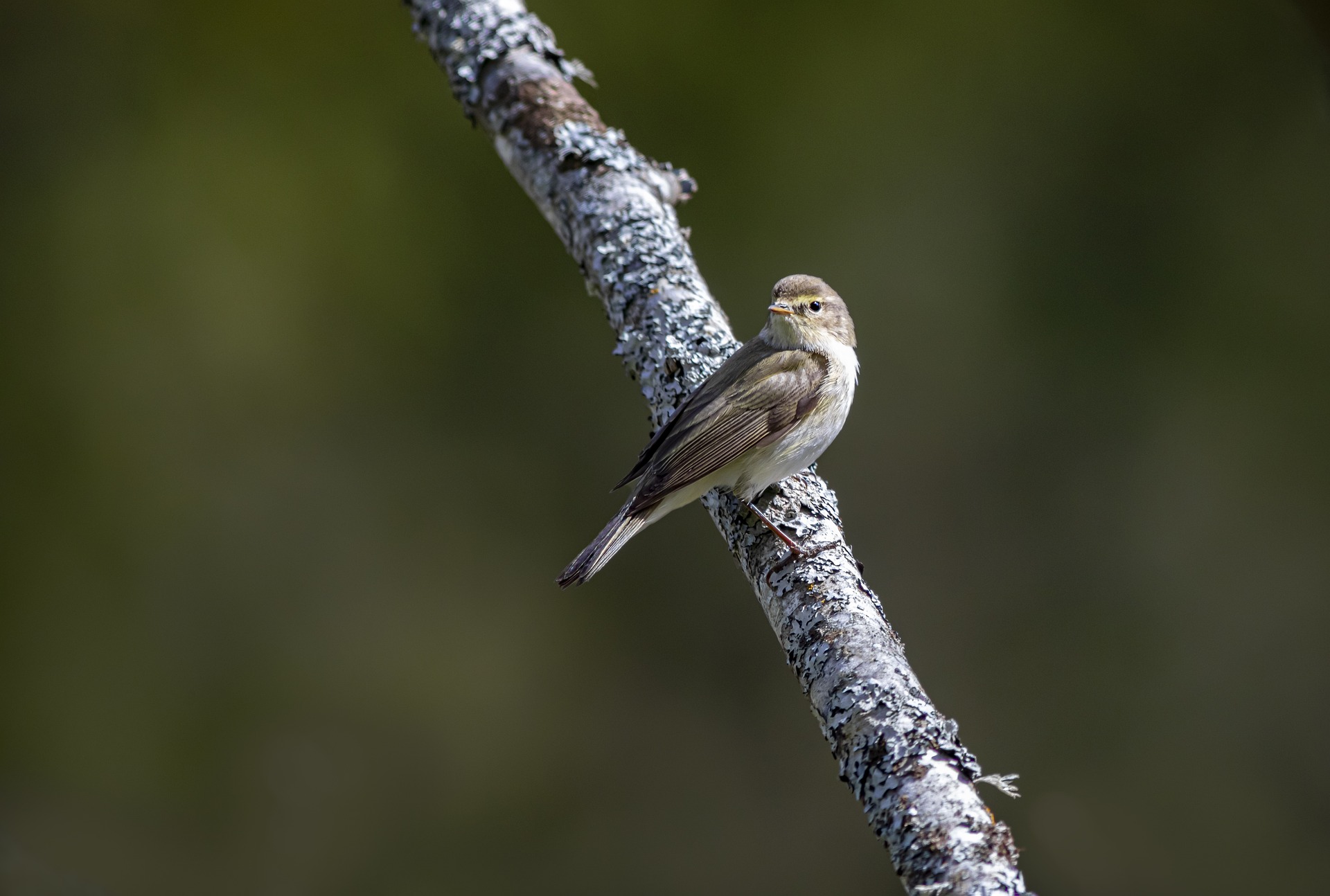The Willow Warbler and the Leaf Warbler are both small passerine birds belonging to the Phylloscopidae family within the larger group of Old World warblers. These birds are often confused due to their similar appearance and overlapping ranges, but they can be distinguished by subtle differences in plumage, vocalizations, and habitat preferences.
- Willow Warbler (Phylloscopus trochilus):
- The Willow Warbler is a small, migratory bird known for its olive-green upperparts and pale yellow underparts, with a faint yellowish stripe above its eye.
- It has a slender, pointed bill, ideal for feeding on insects such as caterpillars, flies, and spiders.
- During the breeding season, the Willow Warbler inhabits a variety of habitats, including open woodlands, scrublands, and forest edges, where it builds its cup-shaped nest low in vegetation.
- Its song is a melodic, descending trill often described as “sweet” or “musical,” which it uses to establish territories and attract mates.
- The Willow Warbler breeds across much of northern and temperate Europe and Asia, wintering in sub-Saharan Africa.
- Leaf Warbler (Phylloscopus sp.):
- The term “Leaf Warbler” encompasses several closely related species within the genus Phylloscopus, including the Common Chiffchaff (Phylloscopus collybita) and the Yellow-browed Warbler (Phylloscopus inornatus), among others.
- Like the Willow Warbler, Leaf Warblers typically have olive-green upperparts and pale underparts, but they may exhibit subtle differences in plumage depending on the species.
- They also possess thin, pointed bills adapted for gleaning insects from foliage.
- Leaf Warblers are primarily insectivorous and forage actively in trees and shrubs, often flitting about in search of prey.
- Their songs are typically high-pitched and repetitive, consisting of simple phrases or trills.
- Leaf Warblers breed in a variety of habitats, including deciduous and coniferous forests, as well as scrublands and gardens, across Europe and Asia. Some species undertake long migrations, while others are resident or partially migratory.
In summary, while the Willow Warbler and Leaf Warbler share similar ecological niches and physical characteristics, subtle differences in plumage, behavior, and vocalizations allow for their identification and classification as distinct species within the diverse family of Old World warblers.
Visited 365 times, 12 visit(s) today
Views: 438
Subscribe to the newsletter:
